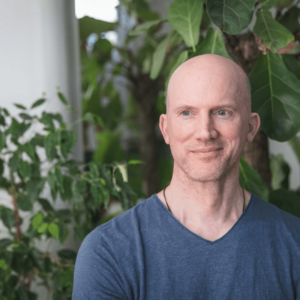by Benjamin Fry
I write quite openly in the press sometimes about my experiences of being unwell and in treatment. People ask me why I expose myself so much. They think that it is a little odd, something they would not do. Added to that, I am a psychotherapist, so they wonder if it would be bad for my career, or even my clients, to know that I was completely bonkers myself. They are all fair points. In many ways it is an agony to disclose things about myself, and in other ways it can be considered to be unprofessional.
I took this dilemma to a new level in the writing of my latest book, which tells the intimate story of my breakdown, treatment and recovery. I made a decision early on in writing the draft to leave nothing out of the initial version, but then had to come back to this and to wonder if I was really going to be ok being that vulnerable in the public domain. In fact, I decided not to be and then that very same day a new client came to see me in London and this made me rethink.
She had been terribly abused as a child and found this really hard to talk about. She was reliving, forty years later, the same conditions of her childhood home, in which she was not allowed to talk ‘about it’. She had none of my advantages of education, treatment and support, and I could see how difficult it was for her even to tell me, in the privacy of a consultation which she was paying for. It made me realise that if I wasn’t going to be courageous about talking about my abuse, then how could I ask her to be?
I had to think about the issue on a deeper level too. Why did I feel guilty, dirty even, to talk about the abuse in my childhood? Over and over, I came back to the thought that it wasn’t my fault, so why should I be ‘wrong’ or ‘bad’ to talk about it. And yet I did feel wrong and bad, but most of all ashamed.
In theory, I understood that I was feeling the abuser’s shame, but this was no comfort. The idea is that the child has to make a choice between seeing the abusing adult as the ‘bad’ one, but if that is too terrifying it itself (which it often is if you rely on that adult), then it is easier to see yourself as the ‘bad’ one. Bad things happen to me because I am bad. And, yes, that is actually how I feel about it when I talk about my childhood too. I feel that I am commenting negatively on myself when I say that something bad happened to me. It’s a terrible bind.
So I have steeled myself to take the plunge. In the end I decided to publish the original book, with all the worst of my story remaining in it. It has become even more difficult because the original idea was to use these stories to illustrate a more theoretical book, but the story itself was so long that we decided to publish it standalone. I never set out to tell my story just for the sake of it, and certainly not in this detail, but that is what appeared to end up as the result. Then I faced this awful dilemma.
The book is now available and I feel like I just want to hide. I can see that it is a good book that would be of great value to people with similar problems or histories, but part of me also doesn’t mind if nobody reads it. In my work, I tell people that the antidote to shame is to speak out, to name your truth and to survive it. I am hoping to survive this book. It is my deepest truth. Why should I feel bad about that?
You can read the articles and excerpts from the book on our blog.
Buy the book from amazon.com and amazon.co.uk or download it to your Kindle.
If you would like a weekly email about new posts on our blog please sign up for our mailing list in the box above right.






